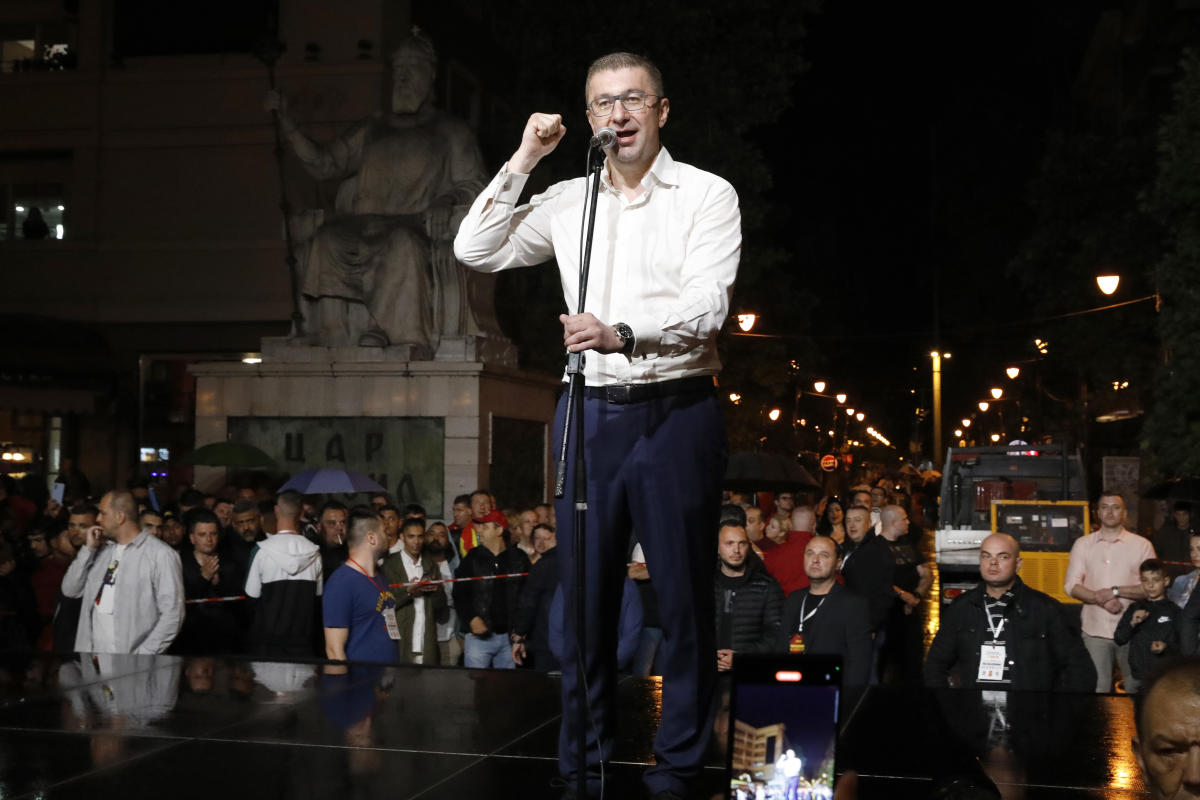Cal Ripken Jr. praises Orioles’ catcher Adley Rutschman
Orioles legend Cal Ripken Jr. talks about what Adley Rutschman brings to the Baltimore organization.
Sports Seriously
They still talk about it, laugh about it now and then, occasionally watch videotape of the infamous game, but they vividly remember 50 years ago hilarity being replaced by anger, fear and panic.
“I’ve never really talked about this before,” Dave Duncan, who was on the Cleveland Municipal Stadium field that night, tells USA TODAY Sports. “It was just too crazy. Dangerously crazy. Stupid, really.”
It was the night of June 4, 1974.
Two months after Hank Aaron broke Babe Ruth’s all-time home run record, two months before Richard Nixon resigned as president after Watergate, and four months before Tommy John surgery was introduced to the baseball world, it was 10 Cent Beer Night.
The promotion that led to one of the most chaotic nights in baseball history.
It began as a baseball game between the Texas Rangers and Cleveland Indians, turned into a raucous atmosphere and, by the end of the evening, a full-fledged riot.
Seven people were sent to the hospital.
Nine people were arrested.
An estimated 60,000 beers were consumed.
“I don’t remember being nervous or scared until we were back in the clubhouse,” says Mike Hargrove, one of the Rangers players on the field that night, “and that’s when it hit me. ‘Oh, my God.’
“I mean, we saw everything out there.”
The Cleveland team, averaging just 13,756 fans a game in a 78,000-seat stadium for a squad that had not had a winning record since 1968, tried anything and everything to attract fans.
So, team officials decided to have four 10 Cent Beer Night promotions.
And, on June 4, 1974, the first one was staged, drawing twice the average-sized crowd with 25,134 fans in attendance.
“We didn’t really think anything of it at the time,” said Tom Grieve, the former Rangers DH who later became their general manager. “I mean, there was never anybody at that stadium. It was always cold, dingy, and the stadium was always pretty empty.
“The only difference this time was that there was noticeably a bigger crowd.”
It took two innings for everything to change.
A woman ran onto Cleveland’s on-deck circle in the second inning, exposed her breasts, rushed to home plate umpire Nestor Chylak, and tried to kiss him.
In the fourth inning, while Grieve was circling the bases after his second home run, a naked man wearing nothing but two black socks ran onto the field and slid into second base.
An inning later, a father and son ran onto the field behind home plate, went to center field, dropped their pants, and mooned the Rangers outfielders.
“There was no security back then,” says Hargrove, who entered the game in the fifth inning. “The security was ushers in the stands.”
Soon, with fans overtaking several concession stands and pouring themselves beer, firecrackers were going off in the stands and being thrown into the Rangers’ bullpen in the seventh inning. By the ninth inning, there had been perhaps 200 drunken fans who had run across the field, along with beer cups, coins, rocks, batteries, golf balls, tennis balls and folding chairs thrown onto the field.
“I was playing first base, and I had about 20 pounds of hot dogs thrown at me,” Hargrove says. “There was an empty gallon jug of Thunderbird wine thrown about 20 feet from me. I thought the grounds crew would pick it up. Instead, some guy came down from the stands, picked it up, and took it back into the stands.
“That was my first indication that, ‘Oh, this isn’t going to go real well.'”
Jim Sundberg, Hargrove’s roommate for 3½ seasons, remembers talking with Hargrove that evening and wondering whether this was the norm for baseball games in Cleveland. It was the first time they’d ever been to Cleveland and they didn’t know any better.
“It was getting scary as the game went on,” Sundberg says, “and it was about the sixth inning when the concern was growing. Everything just started to intensify.”
The Rangers, who had led the game since Grieve’s home run to center field off Fritz Peterson in the second inning, had a 5-3 lead entering the bottom of the ninth. Cleveland began a rally with George Hendrick’s one-out double. Four batters later, the score was tied, with two outs, Rusty Torres on second base and Jack Brohamer, who was hitting .336, at the plate.
Steve Foucault, who relieved future Hall of Famer Fergie Jenkins in the sixth inning, never threw another pitch.
Terry Yerkik, a 19-year-old fan who was the state wrestling champion in his senior year at Richfield Heights (Ohio), jumped down from the stands, ran toward Rangers right fielder Jeff Burroughs and swiped the cap off his head. Burroughs tried to kick him, slipped, and fell to the ground.
Rangers manager Billy Martin, who believing that Burroughs had been hit by Yerkik, immediately instructed everyone to grab their bats, charge the field, and save Burroughs.
“Billy says, ‘Let’s go get them, boys!'” Grieve said. “It was like The Charge of the Light Brigade.”
Said Sundberg: “Everybody ran to right field. I made the mistake of throwing my helmet and mask down.”
The fans, believing it was their duty to rescue Yerkik, stormed the field. Some threw chairs onto the field, with Cleveland reliever Tom Hilgendorf ushered off the field with his head bleeding from a steel folding chair. Hargrove tackled one fan in the outfield, held down another with his left hand, and was punching another with his right hand.
“People had been happy and drunk most of the game and just having a blast,” Grieve said. “It was just a happy group of drunks. I don’t think it occurred to anybody until later that if 1,000 people went onto the field and got pissed off, what are we going to do about it.”
Said Sundberg: “I remember there was a guy that seemed to be pretty serious about wanting to kick my butt. Dave Duncan tackled him before he got to me. Then I saw Billy kicking him in the face. Good ol’ Billy, he loved to fight.”
The Cleveland players rushed out of the dugout to take on their own fans in support of the Rangers, trying to restore peace. It was useless.
Chylak, realizing that it would be impossible to resume the game, called a forfeit. The Rangers were officially declared 9-0 winners, much to Martin’s delight and Chylak’s fury.
Chylak, who fought in the Battle of the Bulge in World War II and earned the Silver Star and Purple Heart, was so incensed that he walked through the tunnel to the umpire’s room, took off his mask, and smashed every light bulb along the way.
“I’ll never forget that,” Grieve said.
The Cleveland Police Department came to the stadium after the game was called, taking about 30 minutes to clear the field and make the nine arrests.
“(Bleeping) animals!” Chylak, who died eight years later, told reporters after the game. “You just can’t pull back a pack of animals. When uncontrolled beasts are out there, you got to do something. I saw two guys with knives, and I got hit with a chair. …
“If the (bleeping) war is on tomorrow, I’m going to join the other side to get a shot at them.”
The Rangers, with their clubhouse doors locked, stayed inside for hours, with Martin saying, “That was the closest you’re ever going to be to seeing someone get killed in this game of baseball.”
The Rangers stayed in the clubhouse for hours until they were escorted by police to their downtown Cleveland hotel, the Hollenden House. They were ordered to immediately go to their hotel rooms and not to leave until noon the next day.
“I remember Jeff Burroughs coming up to me and saying, ‘Hang in there,'” Grieve said.
“I said, ‘What do you mean?’ He said, ‘We won by forfeit. So your two home runs don’t count.’ I said, ‘You got to be (expletive) me.’
“Maybe 10 seconds later, he said, ‘Just kidding.'”
The following day, American League President Lee MacPhail said “there was no question that beer played a part in the riot” and halted all promotional events pending league review.
The ban was eventually lifted. Cleveland, which had a “Nickel Beer Day” in 1971, had another 10-cent beer night promotion six weeks later. Fans were limited to two cups per person.
The prelude to the chaotic evening actually began six days earlier in Texas, the players will tell you.
During a game in Arlington, Texas’ Lenny Randle aggressively slid into Cleveland second baseman Brohamer to break up a double play in the fourth inning. Cleveland’s Milt Wilcox responded by throwing a pitch at Randle that missed him but went between his legs. One pitch later, Randle laid down a perfect bunt toward first base, and when Wilcox picked it up, Randle lowered his shoulder into Wilcox and leveled him. Cleveland first baseman John Ellis punched Randle.
The brawl was on.
Even the fans wanted to join the action. One fan dumped his beer over Duncan’s head. Duncan was so incensed that he climbed over the dugout and had to be restrained from attacking the fan.
“There was no one madder in the state of Texas than Dave Duncan,” Grieve said.
Said Hargrove: “Dave Duncan was one of the toughest guys you ever saw. If I was going to pour beer over someone’s head, Dave would be the last guy.”
The Rangers won the game 3-0, and afterward Martin was asked whether he believed there would be repercussions when the two teams played again the following week.
“Nah, they don’t have enough fans there to worry about,” Martin said.
The joke went over like the Cuyahoga River catching fire again, with one radio host, Pete Franklin, riling up fans all week, and The Cleveland Plain-Dealer running a picture on the front page of the sports section with their mascot, Chief Wahoo, wearing boxing gloves with the caption: “Be Ready For Anything.”
“It didn’t even cross my mind at the time there would be a carryover,” Sundberg said. “I then started picking up on things fairly quick when I got to the ballgame and realized that Cleveland had promoted it.
“I put two and two together and said, ‘Well, this could be interesting.'”
The infamous night was born.
“That was my first trip into Cleveland,” said Hargrove, who won the AL Rookie of the Year award in 1974, spent his last seven seasons playing in Cleveland and became its manager in 1991.
“I had never been to Cleveland before. So that was my first impression. Not a real good one.
“Who would have thought I’d end up making it my home.”
Now, 50 years later, Hargrove lives in Richfield, Ohio, works as an adviser to the Guardians front office and, yes, he still has a framed picture of the chaotic 10 Cent Beer Night.
“Can you believe it,” Grieve said. “It’s been 50 years, and look, here we are, still talking about it.
“What a night.”

Daniel Miller is a sports fanatic who lives and breathes athletics. His coverage spans from major league championships to local sports events, delivering up-to-the-minute updates and in-depth analysis for sports enthusiasts.







